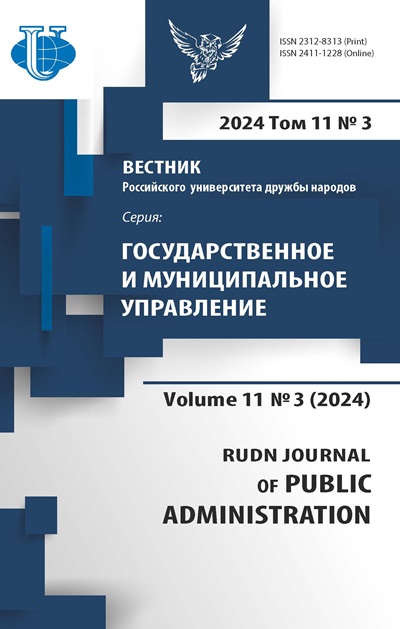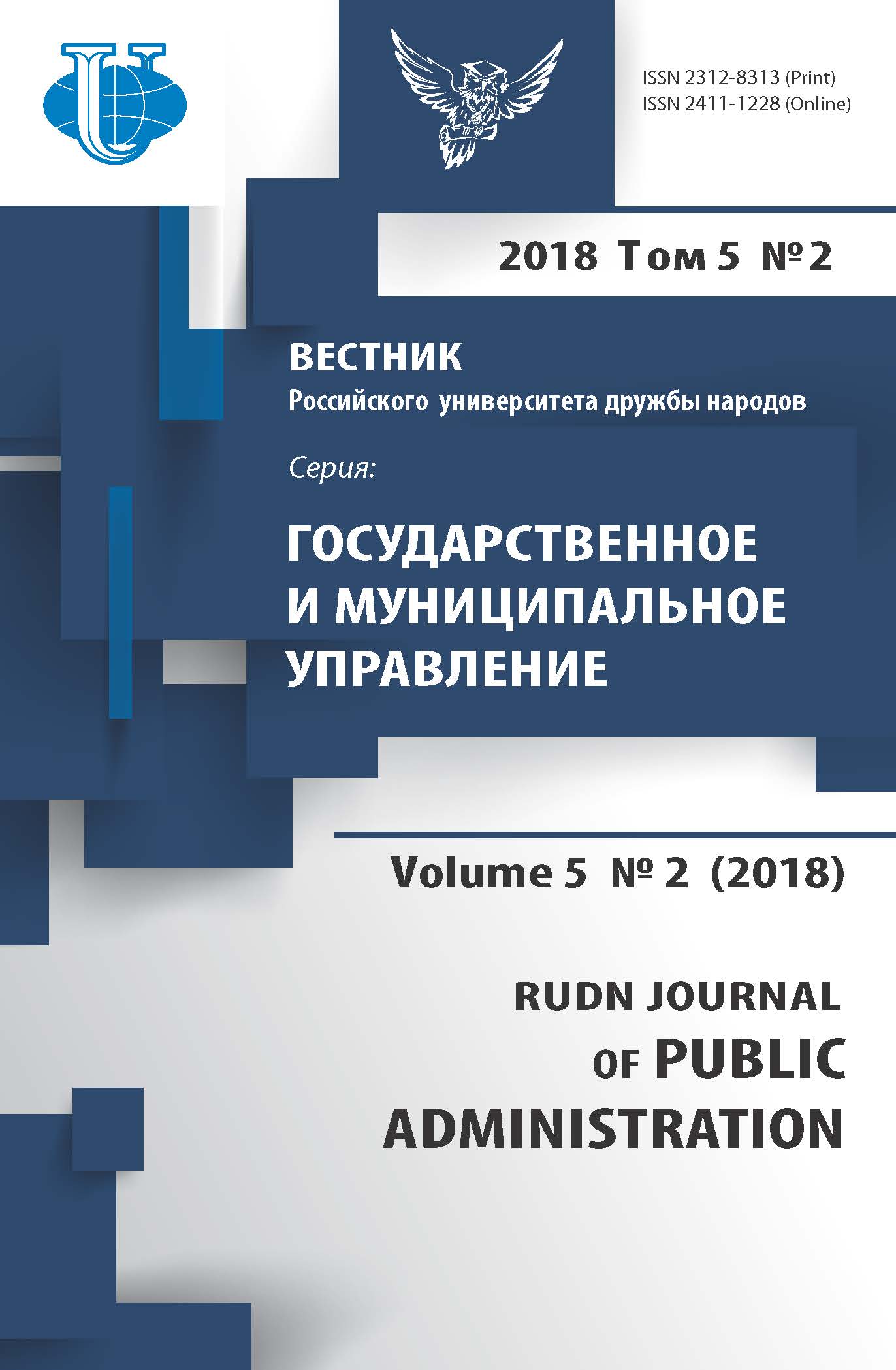Participation and models of intersubjective innovation management
- Authors: Arpentieva MR1
-
Affiliations:
- K.E. Tsiolkovskiy Kaluga State University, Kaluga
- Issue: Vol 5, No 2 (2018)
- Pages: 190-199
- Section: Innovations in the Social Development Management
- URL: https://journals.rudn.ru/public-administration/article/view/20575
- DOI: https://doi.org/10.22363/2312-8313-2018-5-2-190-199
Cite item
Full Text
Abstract
Despite a strong state, civil society has always been strong in Belarus. The modern, post-capitalist model of its development, like the socialist model, is directed to the activation of the community, the acceptance by the community of active participation in the solution of problems more or less directly related to it. On this path, transformation and changes in the relations of models of governance are taking place: the models of participatory control, of the post-nonclassical type, are gaining more and more importance. We need an integrative historical analysis of traditions and innovations in the management of cultures and other spheres in different countries, a comparison of the success (productivity and effectiveness) of different management models. Such a comparison, conducted by us, shows that innovations in managing cultural and cultural institutions of countries and regions in general are based on the traditions of self-government and complicity existing in different countries. Centralized management shapes a-culture and mass culture, emasculating the meanings of traditions and values. Participative management restores these meanings, serves the development of culture, including the culture of people’s relations in education and science, art and technology, etc.
Keywords
About the authors
M R Arpentieva
K.E. Tsiolkovskiy Kaluga State University, Kaluga
Author for correspondence.
Email: mariam_rav@mail.ru
-
26 Stepan Razin St., Kaluga region, Kaluga, 248023, RussiaReferences
- Abdzіralovіch І. Advechnym shlyaham / prad. S. Dubaўca. Mіnsk: Navuka і tehkhnіka, 1993. 44 s.
- Adler A. Ponyat’ prirodu cheloveka. SPb: Akadem. proekt, 1997. 254 s.
- Arpent’eva M.R., Moiseeva T.V. Peregovory kak intersub”ektivnaya tekhnologiya // Ontologiya proektirovaniya. 2017. № 1. S. 102–114.
- Bodrijyar ZH. Ustalost’ // Bodrijyar ZH. Obshchestvo potrebleniya. Ego mify i struktury. M.: Respublika, 2006. S. 230–234.
- Vittih V.A. Problemy ehvergetiki // Problemy upravleniya. 2014. № 4. C. 69–71.
- Glybovskaya N.A. Princip subsidiarnosti kak sredstvo decentralizacii upravleniya // Upravlenie v social’nyh i ehkonomicheskih sistemah materialy XXVI Mezhdunar. nauchno-prakticheskoj konferencii, g. Minsk, 18 maya 2017 g. Minsk: MIU, 2017. S. 128–129.
- Kopysskij Z.YU. Social’no-politicheskoe razvitie gorodov Belorussii v XVI pervoj polovine XVII v. Minsk: Nauka i tekhnika, 1975. 192 s.
- Lev XIII. EHnciklika «Rerum Novarum» // Oficial’nyj sajt Vatikana. URL: http: // www.vatican. va/content /leo-xiii/enciclicals/documents/hf_pxi_enc_18911505_rerumnovarum_en.html (data dostupa: 19.10.2017).
- Levandovski E.N. Princip subsidiarnosti v grazhdanskom prave Germanii // Vіsnik Odes’kogo nacіonal’nogo unіversitetu. 2009. T. 14. Vip. 9: Pravoznavstvo. S. 65–74.
- Luk’yanova E.I. O strukture innovacionnogo potenciala promyshlennogo predpriyatiya // EHkonomika i upravlenie. 2014. № 1(37). S. 106–110.
- Muhina I.G. Gumanitarnyj menedzhment kak mekhanizm upravleniya obshchestvom // Upravlenie v social’nyh i ehkonomicheskih sistemah: mat-ly XXVI mezhdunarodnoj nauchno-prakticheskoj konferencii, g. Minsk, 18 maya 2017 g. / Red. N.V. Susha i dr. Minsk: MIU, 2017. S. 124–125.
- Pij XI (Pius XI). EHnciklika «Quadragessimo Anno» // Oficial’nyj sajt Vatikana. URL: http://www.vatican.va/content/pius_xi/enciclicals/documents/hf_pxi_enc_19310515_ quadragessimoanno_en.html (data dostupa: 19.10.2017).
- Porus V.N. Ontologiya kul’tury S.L. Franka / Pod red. V.N. Porusa. M.: ROSSPEHN, 2012. 589 s. S. 373–416.
- Tulejko E.V. Podhody k formirovaniyu strategii gosudarstvenno-chastnogo partnerstva v social’noj sfere Respubliki Belarus’ // EHkonomika i upravlenie. 2015. № 2(42). S. 15–19.
- Timoshina T.M. EHkonomicheskaya istoriya zarubezhnyh stran / Pod red. M.N. CHepurina. M.: YUD «YUsticinform», 2000. 496 s.
- Toro G.D. O grazhdanskom nepovinovenii // Novye proroki. Toro. Tolstoj. Gandi. EHmerson. SPb., «Aletejya», 1996. 348 s.
- YAsheva G.A. Konkurentosposobnost’ predpriyatij legkoj promyshlennosti / G.A. YAsheva, N.L. Prokof’eva, V.V. Kvasnikova. Vitebsk: VGTU, 2003. 302 s.
- Gandhi M.K. Harijan. 1936.29.08. // The collected works of Mahatma M. Gandhi. May 16, 1936 October 19, 1936. Vol. XXXXXXIX. India, Deli: Publications Division, Ministry of Information & Broadcasting, Government of India. 1998. 463 p.
- Gandhi M.K. Young India. 1919. 23 June // The collected works of Mahatma M. Gandhi. Vol. XVIII, May 01, 1919 Sep 28, 1919. Deli: Division. 1998. 469 p.
- Mindell A. Processmind: A user’s guide to connecting with the mind of god. San Francisco: Quest Books, 2010. 304 p.
- Schupbach M. Worldwork l // Organisations Entwicklung. 2007. № 4. R. 56–64.
- Thoreau H.D. Æsthetic Papers Art. X. – Resistance to Civil Government. Hollister: YOGeBooks by R.L. Cole, 2017. 59 r.
















